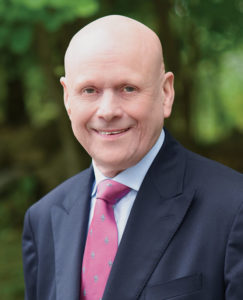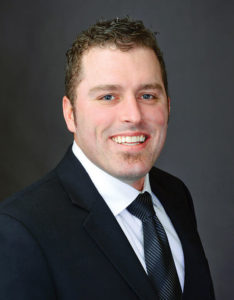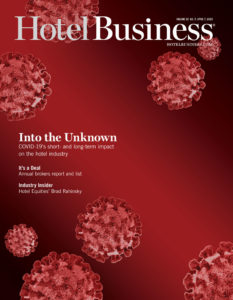COVID-19 has sent shock waves through the hospitality industry around the globe.
“Social distancing” and “flattening the curve” are phrases that have entered the world’s vocabulary, leading to the cancellation or postponement of events—from business conferences and sporting matches to weddings and other social gatherings. This is causing drops in occupancy, outright hotel closures and large swaths of the hospitality workforce being furloughed. Companies are working diligently to figure out what to do next.
With news changing on an hourly basis, Hotel Business reached out to industry experts on the issues the industry will face when the coronavirus pandemic nears its end.
At this early stage in the health crisis, the hospitality industry is already taking an economic hit—the extent of which is still unknown.
“If this coronavirus shutdown continues for a period of time, it is going to cause significant erosion to the economic performance of the country, and that is going to impact the hotel business in a huge way,” said Sean Hennessey, clinical assistant professor, NYU School of Professional Studies, Jonathan M. Tisch Center of Hospitality. “We are already starting to see some declines in the economics of the hotel business by just two weeks’ worth. As this continues, those declines will become more substantial and have a longer-term impact for the hotel industry. If by some miracle there was a readily available cure for the problems tomorrow, such that it ended in a couple of weeks, I don’t think we’ll get to the point where there is a gigantic long-term negative economic impact, and I believe we would see a rebound to travel at some point shortly thereafter.”
Contractual obligations
The pandemic has resulted in the cancellation of thousands of events across the country and world, leading to thousands of broken contracts.
“There’s going to be repercussions for quite a long time with the millions of contracts that are going to be scrutinized in terms of where the chips fall when the contract wasn’t able to be performed and who bears this loss,” said Kent Schmidt, partner, Dorsey & Whitney, an international law firm. “There’s a big part of contract law that is about allocating risks and a lot of disagreements on where the losses fall in connection with this. I think there is going to be a large amount of litigation, and the nature of litigation is such that it will follow for years.”
While every single contract involves different dynamics, most commercial contracts have what is called a force majeure clause, which excuses a party’s performance of its obligations under the contract when certain circumstances arise beyond the party’s control. “Some clauses are pretty narrowly constructed—they say things like war and terrorist attacks and things of that nature; some may have catchall language or may not have catchall language,” he said.
Keith Grossman, partner, Hirschfeld Kraemer, and former general counsel with Starwood Hotels & Resorts, said the fact that federal, state and local governments have enacted guidelines including limiting the size of gatherings and requiring citizens to shelter in place will provide evidence that the party canceling the event was justified in doing so. “You start to have a really good claim that the event planner can get out of the contract,” he said.
But Grossman does believe that hotel companies want to work with planners. “After 9/11, hotel companies wanted to do the right thing; I suspect they’ll allow any of the groups and event planners to get out of the cancellation fee, provided that they agree to rebook within some reasonable period of time—whether it’s a year or two years, depending on the size of the event,” he said. “But I also do think that that there’s going to be a lot of opportunity for people to get out of contracts through the force majeure clauses.”
We’re in this together
Much like hotel companies’ desire to “do the right thing” when it comes to resolving contract disputes over the cancellation of events, there is a feeling among many experts that much like the time after 9/11, there will be a feeling of unity to make sure that everyone comes out the other side economically OK.
“We are also starting to see delinquencies and technical defaults, and I suspect as things continue, we’ll see financial defaults for hoteliers,” said Hennessey. “After 9/11 and 2008, we saw the financial performance of hotels fall off greatly, but you didn’t see a huge proportion of the country’s hotels going into bankruptcy and foreclosure hearings. Part of that is because—I know some specific instances, and I suspect it played out in the broader sense—hotel owners went to their lenders and said, ‘Look, I am doing terrible, but everybody else is too, and foreclosing this hotel certainly does not offer the opportunity for you to achieve superior results once you kick me out.’”
He continued, “Generally, lenders, particularly in down or deteriorating environments, don’t want to take the keys and become unwitting owners of properties. My experience has been there will be a forbearance agreement and extensions that allow hotel owners, probably with a bit of paying, to ride out the downturn.”
Matt Bertram, founder/CEO of TermSt., a capital markets adviser, said that what is advantageous in the current situation is that, unlike the Great Recession, banks are fairly healthy right now. “In 2009, banks wanted to hide their balance sheets a little bit and not take their mark to markets,” he said. “The fact that they are healthier does mean that they could be willing to take the mark to markets and they may not want to be as quick to extend loans and provide time, but that evaluation is well in the future. The banks have a bad enough rep; they do not need negative stories on the front page of The Wall Street Journal.”
While lenders may be more willing to work with borrowers, they expect some responsibility from them. “This is not going to excuse an owner that doesn’t reach out to its lender to say, ‘Look, we are having problems, I’ve got a plan to make it through. Let’s sit down and talk,’” said Hennessey. “If they leave their lender hanging, [lenders]are not going to be too happy. Also, if there is a bona fide sentiment on the part of the lender that the operator or owner is the problem, not the larger economy, then you will see the foreclosure activity that you see in the normal course of business. I think we are far from that.”
Julian Anderson, president, Rider Levett Bucknall (RLB), an international property and construction consultancy firm, agreed that borrowers must be responsible. “Will a bank forbear a missed payment?” he asked. “Maybe. Two missed payments? Probably. Well, how about five or six? I don’t know. At some point, their shareholders will start to say, ‘What the hell is going on?’ If the individual borrowers don’t have really good plans for coming out of it, I don’t think you can count on banks being forgiving in the long term.”
He continued, “That, of course, is balanced by the fact that we know that banks don’t want to be owning lots of assets they have to manage. We saw that in the 2008-2009 crisis. Banks are in the business of banking, not in the business of running hotels or convention centers or airlines. Then there comes a point where they have to start to offload assets, which gets ugly when they start taking losses on their loans. That ugly scenario all depends on how quickly the country can get out of this situation.”
Stay local and act local
A key to bringing business back for hotels once the precautions related to the pandemic have been lifted will be focusing on local business.
“The things that we can look at, and the way that the hospitality industry, in my opinion, can start to recover, is to look for ways to get back to local,” said Mike Chuma, VP, global marketing, enablement and engagement, Ideas, which offers revenue management solutions.
Focusing on the local market is what helped Asia recover from the SARS epidemic in the early 2000s, according to Robert Post, CEO, Knowland, which provides group hospitality analytics for hotels, convention and visitor bureaus (CVBs), conference centers and other meeting venues. “The way they did it was through local business,” he said. “You have to cultivate it. You’re not going to fill the big compression events… They are probably gone for the year. But there’s a tremendous amount of built-up demand for companies for corporate, for local and regional, and that’s what you have to fill out. It’s going to be a lot of smaller things—a lot of $50,000 pieces of business versus $500,000. If your head’s not in the game to go get that stuff, you’re going to be behind because that’s a lot of volume, so sales departments are going to have to be working overtime.”
Chuma also said that Asia’s recovery from SARS may be a good example to follow. “Direct-marketing cooperatives will need to be able to adjust their strategies, and that is a proven technique,” he said. “Coming out of SARS, the Singapore and the Taipei governments did this really strong public/private partnership to understand who their new segments were.”
With the unknowns involved with when the airline industry will be running at full capacity—and the possible reluctance of travelers to venture too far from home—the drive market will be important. “Going local is one of those ways that we can start seeing spot recovery, not just in the U.S., but globally because you can then figure out ways to drive demand as the restaurants and bars come off their quarantine restrictions,” he said. “People will want to go out and socialize once they feel comfortable.”
Peter J. Bates, president, Strategic Vision, sees the drive market as vitally important to the recovery. “Wherever you are, there is a drive market,” he said. “Provided you are telling the right story and you can excite the client, that is something you can look at very quickly. There are some things you can do now in April because no one can tell us when things will be back to normal.”
He said that hotels should be preparing to get that local business now. “A hotelier or resort owner should be looking at their website,” he said. “Is it telling the right story now? Can we adapt it? Does it need factual cleaning up? This is a great time to do that type of thing. Check out your databases. Are those clean? Are they ready to use as soon as it is appropriate? Do you have a robust SEO plan to go when things are ready?”
Chuma said he expects to see more evidence of the drive market going forward. “I anticipate that we are going to see an increase in demand in things that we used to do as kids with our parents—car trips, things within driving distance, going camping—so you still have that social distancing activity,” he said. “I think there are a lot of ways that the hospitality industry is going to be incredibly creative to find its way back.”
For Bruce Rosenberg, president of the Americas, HotelPlanner, the beginning of the recovery period will be the season of the last-minute vacation. “We are seeing pent-up demand,” he said. “We just did a survey with 1,000-plus adults. People still want to travel. The concern is, has this changed people’s attitudes toward travel? I don’t think so. I think there will be significant pent-up demand that will be released as soon as there is a comfort level that the virus has peaked, and people aren’t getting sick. I don’t think, fundamentally, it is going to change demand for travel.”
Once the recovery begins, Bates said it is important that hotels go about attracting guests the right way. “I don’t believe that chopping the rate in half is the way to do it,” he said, “though there will be many who will do that. People should be looking at adding value. That may be adding an extra night. Owners have to understand why this is being done by operators. You have got to get people wanting to come to you because everybody is going to be after the same piece of business. Have your added value programs ready to go.”
Anderson thinks that the opportunity might be there for those who have the means to get deals on renovations. “As travelers start to come back, from a capital expenditure point of view, it will be important to make sure that if there is an opportunity to do a minor refresh, when your competitors haven’t got the capital to do it, for you to do it to set yourself apart,” he said. “Coming out of this, it is likely that the construction industry will be in somewhat of a recession, so you will probably be able to get your small, light renovation project done fairly economically. If you can do a few things to enhance the lobby areas or give the rooms a bit of a refresh, or give the corridors—which seem to get left behind a lot—small renovations to make your property more attractive, it would probably be a good time to do it.”
Positives emerging
As of this writing, some of the markets hit earliest by COVID-19 are beginning to see signs of recovery. “In Asia, in some of the countries that have gotten their hands around coronavirus by taking rather extreme actions early on, where the coronavirus is disappearing, some of the hotel booking companies are reporting an uptick in hotel demand in those areas, so that is indicative that the fear of travel can dissipate,” said Hennessey.
Depending on when the precautions end, Chuma said there may a bit of a bump in the third quarter as events that were postponed in the late-winter and spring are rescheduled. “If we can get through this by June, we are going to see a fairly strong resurgence in Q3,” he said. “My hope is that will cause any furloughed workers to come back quickly. It will cause a little bit of a panic inside the larger organizations due to the fact that they are typically going into next year’s budgeting season but, at the same time, I hope that we will be able to see that bump. In areas that have already gone through the peak of their infection curve—the APAC markets in general—we are already seeing some strong recovery in terms of how they are scheduling shows as well as a little bit of a travel bump.”
Bertram sees opportunities coming in terms of lending after the crisis has ended. “I think there is going to be an opportunity in six months or nine months where interest rates are still going to be ridiculously low and the capital markets have opened up a little bit to where if you have survived, you are probably going to be able to thrive and get some interesting, very low-rate, long-term debt,” he said. “It is not going to be for everybody—not everybody is going to be capable of taking advantage of the capital markets. It is still going to be a little bit stressed in six and nine and 12 months.”
He continued, “The lending industry for hotels is very focused on having a really solid trailing 12 months of financials, and, obviously, if you are at 0% occupancy for April, and May is pretty low and March is pretty low, and June is getting a little bit better, you are going to have a really bad trailing 12 for the next 18 months. You are probably going to need to be creative. There are some lenders who are going to decide that once this rebounds, they are interested in doing some hotel loans and they will think about how to underwrite and select differently than the pure trailing 12.”
Chuma thinks the recovery could be quick. “I see optimism that the recovery is going to be quick, but it is going to be different,” he said. “We are going to see the individual business traveler who is going to act like a transient. We are going to go away from nonessential travel restrictions to the essential business functions then to nonessential business travel. That is going to pick up quickly because there is a massive amount of pent-up demand in the market. The biggest change is it’s going to really challenge our industry as to how it operates from a group and an event standpoint. Social distancing will have a longer-term impact in terms of how organizations need to plan for their large events, their conferences and their meetings. I don’t think it is going to completely upend the industry, but I do think there is going to have to be meaningful thought as to how we handle some of the things that have driven the business in the past.”
Be prepared
Chuma said that hotels must be preparing for the recovery now. “The best thing people can do is study your segments and prepare now for your recovery,” he said. “There are some things you have to be very mindful of. In times of panic, you have to maintain your brand. You are going to come out of this and you want to be able to recover as quickly as possible and maintain your differential in your comp set…because if you don’t, you are not going to be able to get yourself back to your original or your adjusted plans, and you are just going to prolong the negative impact that may take place.”
He continued, “You may not be able to recover your ADR all the way, but you’ll still be able to maintain your brand position and your price differential, which will help you with your market position compared to your comp set—and then you won’t have to scramble to have promotions and such. Now is the time to plan for the recovery, but just know that how you plan for that recovery is going to be a bit different in terms of where your source markets are and where you allocate.” HB
Hotel financing: strategic options
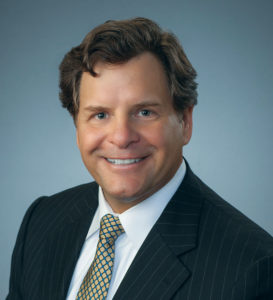 Hotel industry financier Harry G. Spirides, president, Spirides Hospitality Finance Company, offered tips on how to get through the economic slowdown caused by the COVID-19 pandemic. Hotel owners should consult with their corporate business attorney and CPA before making any financing strategic decisions.
Hotel industry financier Harry G. Spirides, president, Spirides Hospitality Finance Company, offered tips on how to get through the economic slowdown caused by the COVID-19 pandemic. Hotel owners should consult with their corporate business attorney and CPA before making any financing strategic decisions.
1. Ask your lender to modify your loan terms and defer payments. During this difficult period of time, I highly recommend honest, polite, direct, frequent and professional communication with all of your stakeholders. This includes your lender or loan servicer along with your corporate business attorney and CPA, as well as your hotel franchise company and any third-party management company. It is always best to keep a friendly and professional relationship with them all. When you approach them, you should convey your willingness to be flexible. If you are experiencing a severe financial hardship, then you should consider picking up the phone and drafting a letter to request your existing lender or loan servicer to significantly modify their loan terms to be more favorable for you and to reflect the new business realities of today, and to also defer their monthly loan payments for six months. When a lender allows a deferment, this means they will add the skipped mortgage payments to the back end of the loan to be paid at the end of the loan term.
On March 10, 2020, the SBA sent Information Notice # 5000-20004 effective immediately to all SBA 7(a) Lenders, 504 program Certified Development Companies (CDCs) and Microloan Intermediaries to remind them of their unilateral authority to provide temporary relief in the form of up to six months of deferred payments to existing borrowers.
2. Apply for an SBA Economic Injury Disaster Loan. The U.S. Small Business Administration (SBA) loan programs will play a key role in providing small business owners financing options during the COVID-19 economic downturn and during the recovery.
If your hotel is located in an eligible area, you should consider applying for an SBA Economic Injury Disaster Loan, which can offer up to $2 million in cash assistance at a 3.25% interest rate and can provide vital financial support to you to help alleviate the temporary loss of revenue you are experiencing.
Additionally, each state usually has its own version of a disaster relief funding program.
3. Refinance and consolidate your existing debt. You might consider refinancing the existing debt on your hotels at a higher loan-to-value ratio and with a much lower interest rate and get “cash out” (harvest your equity) and redeploy that cash equity as needed. There are many standard loan programs available that can achieve this objective. A refinance is a good opportunity for a debt consolidation in which all of a hotel owner’s different debt obligations are paid off and consolidated and some additional working capital is advanced. Afterward, a hotel owner will have just one monthly loan payment with a much better interest rate.
4. Seek a business line of credit, working capital loan, bridge loan, credit card merchant cash advance, loan from a retirement account, or a second mortgage. Hotel owners can seek a variety of loans to keep their hotels afloat during these lean times. SBA 7a working capital loans are very popular these days. I also know a company that is making short-term bridge loans using second, third or fourth position security interest (even using already mortgaged residential property as collateral), but they are a little on the expensive side. You, along with your attorney and CPA, should thoroughly research and quantify all costs and payback terms associated with these loans before you agree to accept any one of them.
5. Bring in a new partner. Your new partner will be given a percentage of ownership commensurate with their cash investment or a negotiated amount. Each partner’s attorney can work together to draw up the appropriate paperwork to create your new partnership. Be sure to ask your attorney and CPA whether a Buy-Sell Agreement or a Tag Along-Drag Along Agreement would be beneficial.
6. Sell your hotel. When a hotel owner sells their hotel, it frees up all cash equity from that asset to be used in any way he/she desires. Selling a hotel is always the ultimate financial liquidity event for that asset. However, it usually takes a year or more to properly market that hotel property to find a buyer who is willing to pay the right price, unless the hotel owner already knows the buyer.
7. File for a Chapter 11 reorganization. To most hotel owners, this is the worst-case scenario, but it is not the end of the world. It is a new beginning. If lenders do not cooperate with your request for a sizable loan modification and/or deferral of payments, then you have the constitutional right to file for a Chapter 11 reorganization/restructuring of debt and protection from creditors under the U.S. Bankruptcy Code. This will thwart a bank foreclosure. I have seen this strategy employed to produce favorable results for hotel owners. Yes, this will bruise your ego, but it will save your asset. Plus, I assure you that, these days, hotel owners will not be sitting alone in the courthouse. It will be packed. Debtor in Possession (DIP) financing will need to be approved by the Bankruptcy Court and obtained. There are costs associated with a Chapter 11 reorganization, including legal and accounting fees to name just a few.
8. Historic low-interest rates mean opportunity for new projects. Many experts believe this difficult COVID-19 event will be over in five to six months. So, if a hotel owner feels comfortable riding out this storm with his/her on-hand cash reserves, believes in the “long-view” approach to investing, and has excess cash available to deploy, now is a great time to finance the development of a new hotel or to acquire an existing one. Interest rates will not stay this low forever. I suspect that not too many hotel owners will pursue this rosy option at this time, and I will be pleasantly surprised when I receive that phone call.
Hotel owners should consult with their corporate business attorney and CPA before making any financing strategic decisions.
Hospitality Cares to help industry amid outbreak
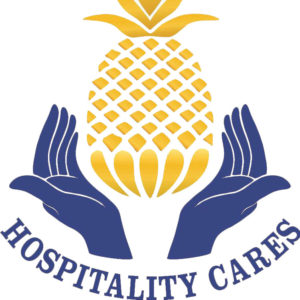 BROOKLYN, NY—With the travel industry poised to incur a multibillion-dollar loss from the COVID-19 pandemic, Hospitality Cares, a not-for-profit organization founded by Michael Schneider, president of NEXT Events, and the late Helen Marcus of Zenith Rugs, has created a dedicated Coronavirus Fund to assist those who are experiencing financial fallout due to this global virus.
BROOKLYN, NY—With the travel industry poised to incur a multibillion-dollar loss from the COVID-19 pandemic, Hospitality Cares, a not-for-profit organization founded by Michael Schneider, president of NEXT Events, and the late Helen Marcus of Zenith Rugs, has created a dedicated Coronavirus Fund to assist those who are experiencing financial fallout due to this global virus.
The organization, originally launched in September 2009, was founded to help hospitality professionals recover from the 2008 financial crisis. Hospitality Cares was recently relaunched following the cancer diagnosis of Kathryn Pol, project director, Benjamin West, who now serves as president of the advisory board for Hospitality Cares.
“The charter was always to focus on hospitality industry needs—principally financial or health,” said Jim Hesterly, VP of Hospitality Cares. “Hospitality Cares will be there for people who have needs for either of those reasons.”
Pol said that the hospitality industry is a tight-knit community. “Going through my situation, I have really experienced…how many friends and companies can just rise up,” she said. “I have heard from designers, suppliers, owners of hotels, the brands—so many people have supported me in my journey. That is where this really hit home for me: I know there are other people out there.”
Schneider said that the point of the Coronavirus Fund is to raise funds that are going to be desperately needed. “People are licking their wounds in the hospitality industry,” he said. “Although we haven’t seen an inflow of dollars right now, I think that once we get past this immediate situation, there [will be]. Our job and responsibility is to figure out the best way to distribute those funds. There is going to be huge job losses and collateral damage from this virus, and we want to make sure people are aware that we have an organization that wants to make a difference in people’s lives.”
In addition to the financial component of the organization, there will be an emotional one as well. “I do think that this organization will eventually become a sounding board and a community where people can go who are dealing with certain issues, even if they don’t need financial assistance,” said Schneider.
To donate to Hospitality Cares, or find out how to apply for assistance, please visit the website at: hospitalitycares.org



